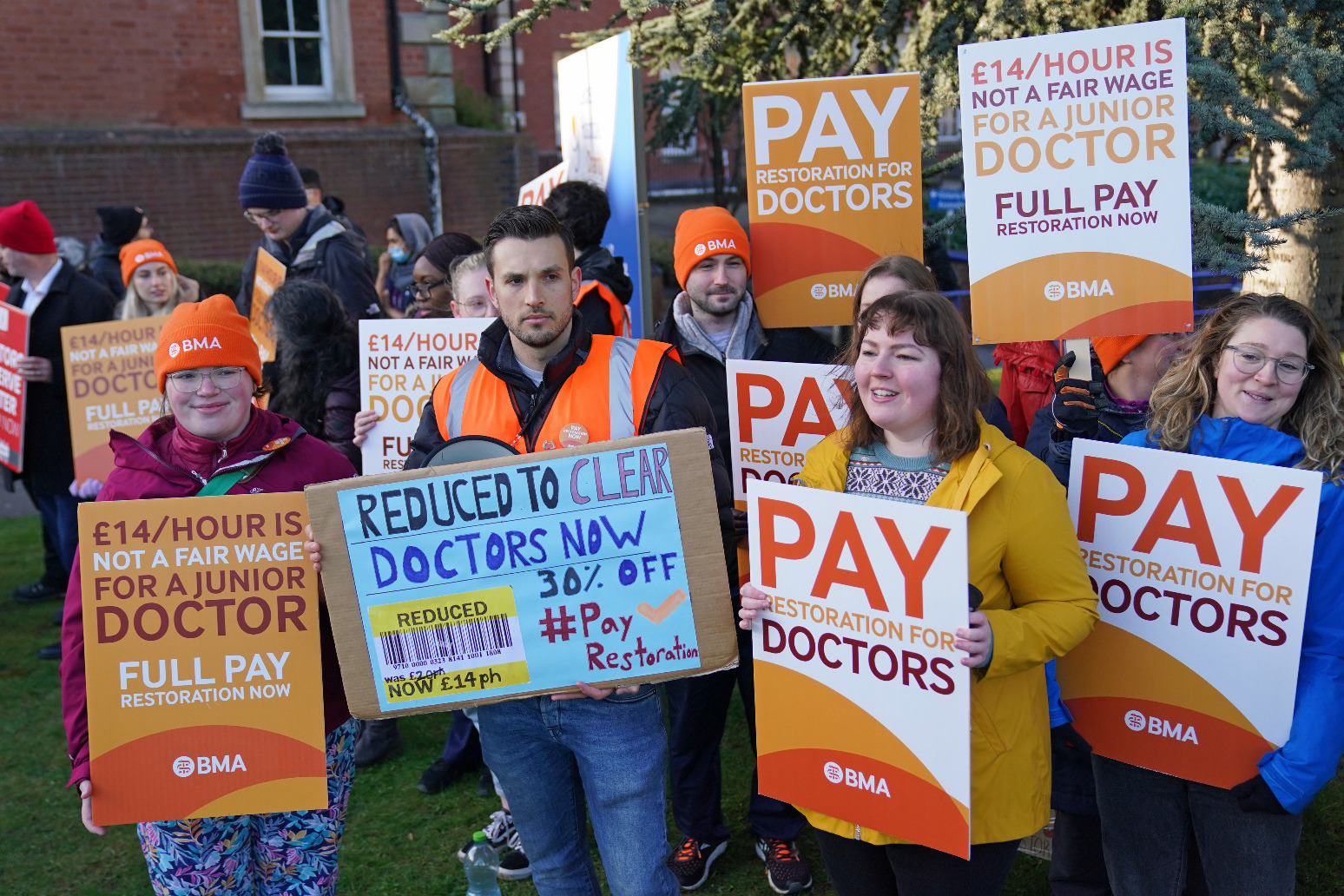
They are set to walk out until 7am on Tuesday
Junior doctors in England have begun their fifth round of strikes, with some new doctors taking to picket lines just days after starting their first NHS jobs.
Foundation Year 1 doctors started their first roles after medical school on Wednesday August 2 – just nine days ago.
Now they are to walk out with colleagues for four full days amid the bitter dispute with the Government over pay.
Concerns have been mounting over the impact of the strike after a High Court ruling which means the NHS cannot seek support from agency staff, as was the case during previous strikes.
The ruling in July concluded that employers could not use agency workers to fill in for striking staff.
While the NHS can use its own bank staff, NHS England pointed to the “additional challenge” posed to the service during this round of strikes.
Meanwhile, NHS representatives have expressed dismay over the ongoing fallout from industrial action.
So far, almost 835,000 appointments have been postponed as a result of industrial action since December across the health service in England, according to NHS figures.
But NHS Confederation said the true level of disruption is being “masked” and, in a worst-case scenario, the number of cancellations could be double this number.
Many hospitals have stopped booking in routine activity on potential strike days to prevent causing more disruption to patients on waiting lists, it said.
And making room for rescheduled appointments means those further down the waiting list also face delays.
After speaking to hospital operations managers and other NHS staff, the NHS Confederation also said the action is heaping increased pressure on the service, hampering efforts to reduce the record backlog of care and leading to a hefty financial cost to the NHS.
It called the Government’s “business as usual” approach to strike action “dangerous” as it urged ministers to reopen negotiations with doctors.
But the Government has insisted that no more talks will take place.
The Department of Health and Social Care said that the pay rise given to junior doctors – a 6% rise along with an additional consolidated £1,250 increase, which the Government describes as an “average increase of around 8.8%” – was “fair and reasonable” and “above what most in the public and private sectors are receiving”.
The latest round of strike action from British Medical Association (BMA) junior doctors in England began at 7am on Friday August 11 and will end at 7am on Tuesday August 15.
The NHS has urged the public to continue to use 999 for life-threatening emergencies and 111 online for anything non-urgent.
It said GPs and pharmacies are also open and largely unaffected by strikes.
Meanwhile, patients should attend their appointment as usual unless they have been told that it is to be rescheduled, it added.
Published: by Radio NewsHub


